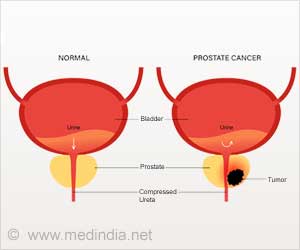How do you check for a prostate cancer recurrence? Prostate-specific membrane antigen (PSMA) PET/MRI can predict whether prostate cancer is likely to return.

When Does Prostate Cancer Most Likely Recur?
Prostate cancer is known to have very variable behavior and outcomes. While many cases of localized prostate cancer can be treated successfully, some patients experience a rapid progression even after surgery or radiation therapy.‘Functional imaging such as PET/MRI is increasingly being considered as a way to identify patients at risk for recurrent prostate cancer.’





Therefore, initial risk stratification is important to determine treatment decisions and subsequent management of prostate cancer patients.Clinicians currently use biopsy findings and clinical information, such as prostate-specific antigen (PSA) levels, to predict if prostate cancer is slow-growing or if it will spread quickly and require aggressive treatments.
Improving Prediction of Prostate Cancer Recurrence using Imaging
In the study, researchers examined the value of 68Ga-PSMA-11 PET/MRI for risk stratification of newly diagnosed prostate patients before initiating therapy.Seventy-three patients with a new diagnosis of intermediate- or high-grade prostate cancer were imaged with 68Ga-PSMA-11 PET/MR between April 2016 and December 2020.
PET findings were divided into groups based on low versus high uptake in the primary lesion and the presence or absence of metastatic disease.
These findings were compared to biopsy results and clinical information. The relationship between the PET/MRI findings and patient outcomes was also examined.
Advertisement
In contrast, patients with low uptake in the primary lesion who did not have evidence of metastatic disease on PET/MRI had a low likelihood of experiencing recurrence during the follow-up period.
Source-Eurekalert

![Prostate Specific Antigen [PSA] & Prostate Cancer Diagnosis Prostate Specific Antigen [PSA] & Prostate Cancer Diagnosis](https://images.medindia.net/patientinfo/120_100/prostate-specific-antigen.jpg)













